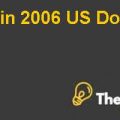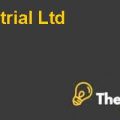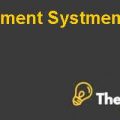
In 2002, U.S. lawmakers quickly passed the Sarbanes-Oxley Act (SOX) as a result of several high-profile bankruptcies and revelations of corporate accounting irregularities and fraud in several U.S. corporations such as WorldCom, Adelphia Communications and Enron. Is the main advantages of SOX - success in shareholder confidence that increases in ownership and market liquidity - to justify these costs? Do the benefits of SOX corporate governance - improving oversight by the board of directors, increasing the reliability of the internal control system, as well as more power is given to the audit committee - to help to justify the cost? This note discusses the legislation itself, with its costs and benefits. "Hide
by Mary Heisz, Devin Scarrow Source: Richard Ivey School of Business Foundation 16 pages. Publication Date: September 8, 2009. Prod. #: 909B13-PDF-ENG













